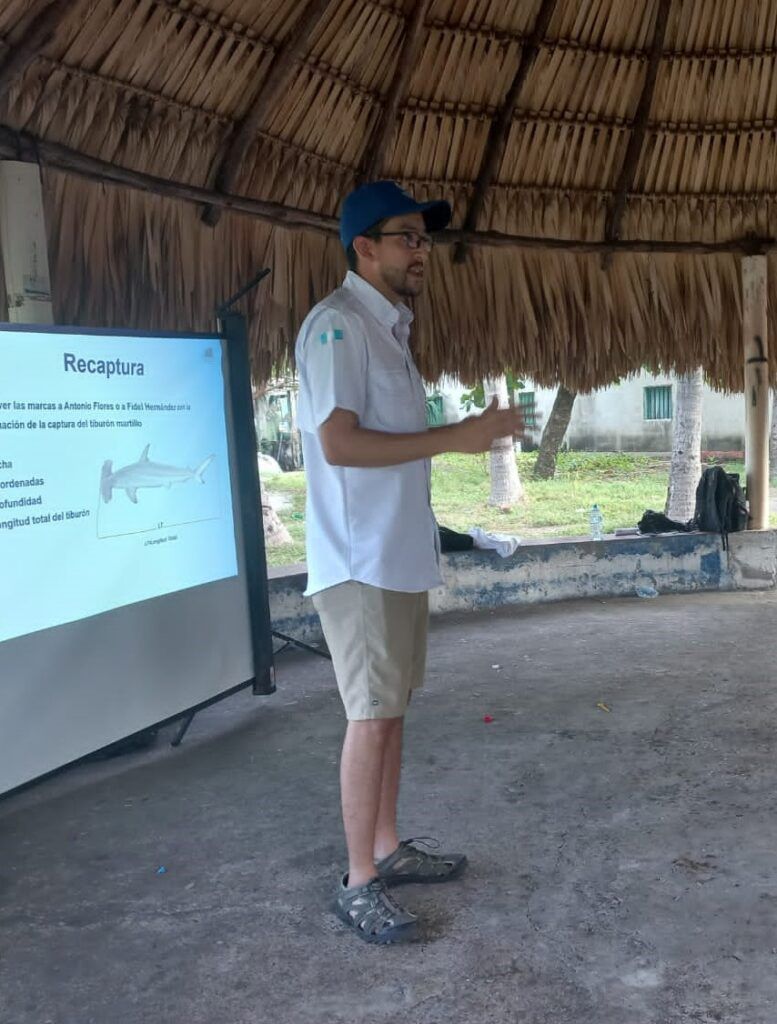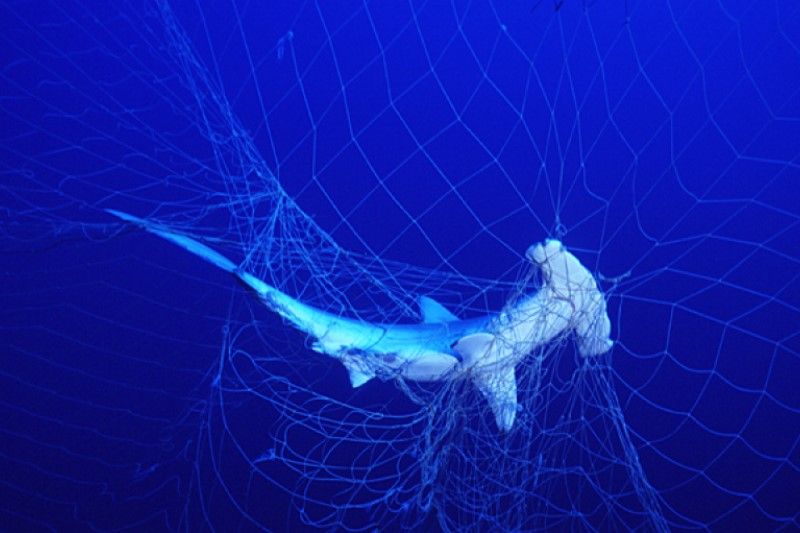Meet Julio Sánchez: Applied Research Coordinator at Blue World Foundation
In this series, we chat to the dedicated staff members, conservation partners and volunteers at PTES. We find out why each of them chose a career in wildlife conservation, what they find rewarding about their work or what they love most about what they do and why they get involved.
Julio Sánchez
Coordinator of Applied Research for Conservation at Blue World Foundation
What’s your role and what’s the most rewarding part of it?
I am the Coordinator of Applied Research for Conservation at Blue World Foundation. The most gratifying thing is having the support of the local fishers to develop the research work, especially in the project of tagging scalloped hammerhead sharks in the Pacific of Guatemala.
What are the main reasons for some of your greatest successes?
I believe that my successes are mainly down to my perseverance, commitment and love for my work. However, it is also essential to recognise the support provided by both my work team and the fishing communities with which we collaborate, that have helped the project get to where it is today.
What has been your proudest moment so far?
The proudest moment of my career so far has been the publication of my first scientific article Elasmobranch bycatch of the shrimp trawl fishery along the Pacific coast of Guatemala in the journal Fishery Bulletin. It’s the first paper I have produced from my research on the sharks and rays which are accidentally caught in fishing nets off the coast of Guatemala and is a big first step in having their conservation threats recognised and tackled.
Do you have a special love for a particular species and why?
I am specially fascinated with scalloped hammerhead sharks because they are such amazing and striking creatures, but at the same time, they are vulnerable. Their physical appearance completely distinguishes them from other sharks – symmetrical lobes in their head give them the ‘scalloped’ look described in their name.
What does the future hold? For you and for your species?
My future aspiration, backed by the support of PTES, is to tag as many neonate (newborn) and juvenile hammerhead sharks as possible in the Pacific of Guatemala, so we can accurately track their movements. This will help determine where their nursery areas are, so we can work to protect the habitats used by this species during its early life stages. I am excited to be working on this research which I am hopeful will have a big impact on saving scalloped hammerhead sharks.
How can we best inspire the younger generation and what advice would you give to young conservationists just starting out?
To the younger generation of conservationists, I would say ‘Imagine a world where majestic hammerhead sharks swim freely in crystal clear waters, where their sleek silhouettes are a symbol of the health and diversity of our oceans. This dream can come true with your help. Hammerhead sharks, with their unique shapes and vital role in marine ecosystems, need passionate advocates. Join the fight for their conservation and protect these magnificent marine predators. Your commitment can make a difference, ensuring a bright future for hammerhead sharks and our precious planet’.
Julio is one of our 2024 project partners, whose research project focuses on scalloped hammerhead sharks in Guatemala and protecting them from threats from fisheries. He works for Blue World Foundation, a marine conservation charity in Guatemala. See how we’re supporting this work:
Header image by Mark Doherty | Shutterstock.com


